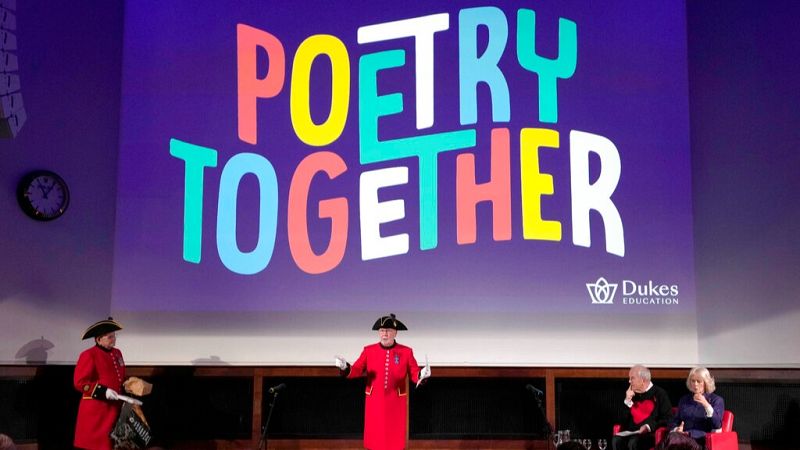
The rise of the #MeToo movement enabled women worldwide to demonstrate the depth of the issue gender-based violence that they endure hardship daily.
Whether on television, through social media platforms, or walking down the street, both famous personalities and ordinary women have shared their stories aloud, finally gaining recognition. These voices included those of poets.
Over the last eight years since the advent of #MeToo, fresh feminist voices have arisen within the realm of poetry. Concurrently, there is a revived fascination with female poets from history whose works were nearly forgotten.
A profound link exists between feminism and poetry.
Poetry has been an integral part of feminism since the inception of the movement. During the American women's suffrage era, activists such as Alice Duer Miller utilized verse to advocate for their cause. Elizabeth Cady Stanton They were also poets. In the United Kingdom, Sylvia Pankhurst composed poetry while imprisoned at Holloway jail in London.
For women, therefore, poetry is not a luxury," wrote African American author and civil rights advocate Audre Lorde in 1985. "It is a crucial element of our lives.
Feminist poets often explore particular subjects, which can be personal and challenging. As French-Tunisian writer and performer Nelly Slim stated to Euronews Culture, “[In the beginning of my journey], discussing violence was crucial for me.” Sexual violence, sexist violence, racist violence, all kinds."
For Belgian slam poet Lisette Lombé, poetry serves as an artistic expression that reflects the immediacy of the feminist fight. "Poetic language carries a flame, a certain intensity that aligns perfectly with this battle," she stated. "While writing a novel can take many years, combating injustice requires actions that may be quicker and more immediate."
Language appears to be a crucial aspect of the deep relationship between poetry and feminism. As writer and translator Lénaïg Cariou stated, "Poetry often confronts reality head-on and attempts to express these experiences through words."
Occasionally, feminism involves nothing more than giving names to things. Consider the clitoris as an example. Merely naming it can appear to be a radical action.
A renewed attention
In 2019, Lenaïg Cariou helped establish the French-American literary translation group called Limited Connection. The aim of this collective is to bring lesser-known poets into light, particularly those who identify as LGBTQ+, women, and individuals from minority backgrounds.
Their latest endeavor is the inaugural French translation of Adrienne Rich’s 1978 collection " The Vision of a Shared Tongue In this work, she explores various topics including motherhood and romantic relationships between women.
Cariou and her team believed that this translation was overdue, and securing a publisher for their initiative proved to be quite easy.
In recent times, we've witnessed an increase in poetry and literary events organized by women, something quite uncommon in earlier periods," she stated. "Many new female-driven poetry publishers and journals have emerged. As though overnight, women and LGBTQ+ individuals seized control of creative assets like never before.
By bringing feminist concerns to the fore of public discussion through the #MeToo movement, these platforms were able to come into prominence.
There was such a scarcity of feminist poetry that now there's a strong desire for it," observed Lombé. "It's akin to a significant revelation movement.
These initiatives honor historic poets while providing platforms for emerging talents. From 2017 to 2019, Nelly Slim and French-Swiss writer Marcia Burnier released the queer and feminist fanzine. It HasBeen Wonderful But I Need to Shout Now , featuring contributions from over 45 writers.
"Slim mentioned that the establishment of this publishing platform stemmed from an urgent need. As women, lesbians, queer individuals, and people of color, we face such a significant lack of validation that we require a setting where we can explore ideas freely without encountering biases in selection processes," she explained.
Writing and speaking
Feminist poets are coming together in collectives to create and share their work within a supportive community setting. For example, in the UK, the queer Resonance poetry collective hosts frequent workshops and open mic events at the Feminist Library in London.
Poetry is indeed not just about writing, but about performing as well. Célia Slamtrotteuse is a slam poet from Switzerland. When she started her career in the 2010s, she was one of the few women on the Swiss slam poetry scene, and her texts on female sexuality and women’s rights were often considered shocking and impertinent.
She stated, "It's an adage that what is penned endures, whereas speech liberates." She added, "There's a profound quality in expressing oneself publicly, particularly when one embraces vulnerability during performances."
For instance, consider this 1987 rendition of Maya Angelou’s renowned poem "Still I Rise."
Is my attractiveness bothersome to you?
Is this unexpected?
That I dance as though I'm adorned with diamonds
In the gathering of my legs?
Maya Angelou She doesn’t merely repeat these words. Instead, she embodies them through her playfulness, dance, and vibrant celebration of life. The frequently lamented sexuality of Black women .
When poets take the stage, the audience witnesses 'bodies of color, female bodies, transgender bodies,' " noted Lombé, who hails from a Congolese heritage. Performance poetry "also emphasizes physical presence, bringing written words to life through one’s body.
Throughout the years, feminist poets have increasingly made their mark, even within traditional establishments. In 2023, the Swiss event Printemps de la poésie (Poetry Spring) welcomed Célia Slamtrotteuse to lead a slam poetry session as part of its focus on women’s poetic legacy. Additionally, in 2024, Lisette Lombé became Belgium's National Poet.
Lenaïg Cariou stated, “I am hopeful that this ongoing feminist movement within the realm of poetry continues.” She added, “This transformation exists; it’s strong yet fragile, much like all feminist revolutions—partial and not entirely complete.”


No comments:
Post a Comment